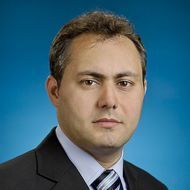HSE Develops Its Own MLOps Platform

HSE researchers have developed an MLOps platform called SmartMLOps. It has been created for artificial intelligence researchers who wish to transform their invention into a fully-fledged service. In the future, the platform may host AI assistants to simplify educational processes, provide medical support, offer consultations, and solve a wide range of other tasks. Creators of AI technologies will be able to obtain a ready-to-use service within just a few hours. Utilising HSE’s supercomputer, the service can be launched in just a few clicks.
Many researchers working in AI development lack sufficient experience in building web services, managing distributed computing resources, system administration, information security, and deployment process automation. SmartMLOps was created to help eliminate the need to learn additional technologies and to address issues of repeatability and reproducibility in machine learning experiments.
The project partners include the HSE AI Research Centre, the School of Software Engineering at the HSE Faculty of Computer Science, and the HSE Tikhonov Moscow Institute of Electronics and Mathematics (MIEM). Experienced and highly qualified HSE specialists are involved in the development and deployment of the MLOps platform.
According to the project lead, Hadi Saleh, the platform is already undergoing pilot testing. Its primary goal is to reduce the time and resources required to deliver product-level services. SmartMLOps ensures the necessary level of reliability, security, and transparency in the use of AI technologies. It allows developers to save time on non-core activities such as system administration, DevOps, and CI/CD. The platform provides a unified graphical interface through which users can create a repository with an AI module template, access models, a monitoring system, orchestrators, and the supercomputer, as well as track their services’ metrics and promptly address issues.
To create a multifunctional, user-friendly, and modern service, the platform’s developers tackled the complex challenge of integrating HSE’s cHARISMa supercomputer cluster into cloud computing. The platform is based on a microservice architecture, with the main component being a framework developed by the HSE AI Research Centre.

Hadi Saleh
‘The platform's functionality includes the creation, storage, versioning, training and fine-tuning of AI models; the deployment of ready-made models as product services with REST APIs; the construction of training pipelines; the monitoring of services and the overall state of computing resources; the ability to use data from HSE’s corporate information systems; and access to cloud storage and supercomputer resources. The framework itself and the first AI modules have already been deployed, and analytical dashboards for monitoring the platform’s status have been implemented. A special autoscaling technology was developed and introduced to save resources,’ said Hadi Saleh.
Unlike commercial solutions such as Amazon SageMaker or Google AI, SmartMLOps is primarily aimed at researchers and students at HSE. To gain access, they simply need to submit an application and await approval. Until the end of 2025, anyone interested may take part in the platform's pilot use.
A special ETL process was developed to securely extract and anonymise information from HSE’s corporate systems. This helps in analysing student behaviour and building predictive models, for example, to forecast career prospects.

Elena Kozhina
‘We expect that the implementation of the SmartMLOps system will mark a significant milestone in accelerating the development of AI-based services at our university,’ noted Elena Kozhina, Deputy Vice Rector and project curator.
At present, eight AI models have been deployed on the platform, and integration has been carried out with three of HSE’s corporate information systems. Two subsystems of the MLOps platform, developed with the involvement of specialists from the Faculty of Computer Science and MIEM, have been registered with the Russian Federal Service for Intellectual Property (Rospatent).

Sergey Lebedev
‘The development of such an ambitious and promising infrastructure project posed a considerable challenge and a timely necessity for the university. SmartMLOps enables the simultaneous solution of research, educational, and administrative tasks of various scales and levels. We managed to form a unique team of professionals and involve students and research assistants in the process,’ said Sergey Lebedev, Head of the School of Software Engineering at the HSE Faculty of Computer Science.

Anton Sergeev
Anton Sergeev, Director of the Centre for Software Development and Digital Services at HSE MIEM, emphasised that systematic work with AI models is impossible without MLOps platforms, which support the full lifecycle of models—from data import and cleaning to controlling the outcomes. ‘Such high-tech projects set a benchmark for AI leadership not only within our university, but across the country as a whole. They represent HSE’s scientific excellence in the form of a system that will assist ML specialists in applying AI models to a wide range of real-world problems,’ he said.

Pavel Kostenetskiy
Pavel Kostenetskiy, Head of the Supercomputer Modelling Unit, gave the service high praise. ‘The MLOps platform will make it easier for HSE researchers working in AI to access the ‘cHARISMa’ supercomputing cluster and will lower the entry threshold into high-performance computing. In a sense, HSE’s supercomputer will appear like a cloud within this MLOps platform, which many will find convenient,’ concluded Pavel Kostenetskiy.
See also:
HSE Scientists Reveal What Drives Public Trust in Science
Researchers at HSE ISSEK have analysed the level of trust in scientific knowledge in Russian society and the factors shaping attitudes and perceptions. It was found that trust in science depends more on everyday experience, social expectations, and the perceived promises of science than on objective knowledge. The article has been published in Universe of Russia.
Final of International Yandex–HSE Olympiad in AI and Data Analysis Held at HSE University
Yandex Education and the HSE Faculty of Computer Science have announced the results of the international AIDAO (Artificial Intelligence and Data Analysis Olympiad) competition. Students from 14 countries took part. For the second year in a row, first place went to the team AI Capybara, which developed the most accurate AI model for an autonomous vehicle vision system.
AI Lingua Included in Compilation of Best International AI Practices in Higher Education
HSE University has been acknowledged internationally for its pioneering efforts in integrating artificial intelligence into higher education. The AI Lingua Neural Network developed at HSE was included in the renowned international collection ‘The Global Development of AI-Empowered Higher Education: Beyond the Horizon.’ The compilation was prepared by the Institute of Education (IOE) of Tsinghua University with the support of the Ministry of Education of the People's Republic of China and a global advisory committee, which included experts from Oxford, UCL, Sorbonne, Stanford, and other leading academic centres.
Technological Breakthrough: Research by AI and Digital Science Institute Recognised at AI Journey 2025
Researchers from the AI and Digital Science Institute (part of the HSE Faculty of Computer Science) presented cutting-edge AI studies, noted for their scientific novelty and practical relevance, at the AI Journey 2025 International Conference. A research project by Maxim Rakhuba, Head of the Laboratory for Matrix and Tensor Methods in Machine Learning, received the AI Leaders 2025 award. Aibek Alanov, Head of the Centre of Deep Learning and Bayesian Methods, was among the finalists.
HSE University to Join Physical AI Garage Project by Yandex
Yandex is collaborating with leading Russian universities to launch a new educational programme called Physical AI Garage. This initiative unites five universities—HSE University, ITMO, MIPT, MAI, and MEPhI—to train future professionals in physical artificial intelligence by tackling real-world industrial challenges. The programme is free, and participants will receive scholarships.
HSE Scientists Optimise Training of Generative Flow Networks
Researchers at the HSE Faculty of Computer Science have optimised the training method for generative flow neural networks to handle unstructured tasks, which could make the search for new drugs more efficient. The results of their work were presented at ICLR 2025, one of the world’s leading conferences on machine learning. The paper is available at Arxiv.org.
Under a Blooming Magnolia: How Russian and Chinese Scientists Create Solar Cells of the Future
Schola continues to introduce the winners of the International Academic Cooperation competition. In today's issue, Professor Andrey Vasenko, Deputy Head of the Scientific and Educational Laboratory of Quantum Nanoelectronics at Tikhonov Moscow Institute of Electronics and Mathematics (MIEM), speaks about the joint project between his laboratory and the Peking University research team— ‘Engineering of highly efficient and stable perovskite solar cells.’
Neural Network Trained to Predict Crises in Russian Stock Market
Economists from HSE University have developed a neural network model that can predict the onset of a short-term stock market crisis with over 83% accuracy, one day in advance. The model performs well even on complex, imbalanced data and incorporates not only economic indicators but also investor sentiment. The paper by Tamara Teplova, Maksim Fayzulin, and Aleksei Kurkin from the Centre for Financial Research and Data Analytics at the HSE Faculty of Economic Sciences has been published in Socio-Economic Planning Sciences.
Larger Groups of Students Use AI More Effectively in Learning
Researchers at the Institute of Education and the Faculty of Economic Sciences at HSE University have studied what factors determine the success of student group projects when they are completed with the help of artificial intelligence (AI). Their findings suggest that, in addition to the knowledge level of the team members, the size of the group also plays a significant role—the larger it is, the more efficient the process becomes. The study was published in Innovations in Education and Teaching International.
Advancing Personalised Therapy for More Effective Cancer Treatment
Researchers from the International Laboratory of Microphysiological Systems at HSE University's Faculty of Biology and Biotechnology are developing methods to reduce tumour cell resistance to drugs and to create more effective, personalised cancer treatments. In this interview with the HSE News Service, Diana Maltseva, Head of the Laboratory, talks about their work.


